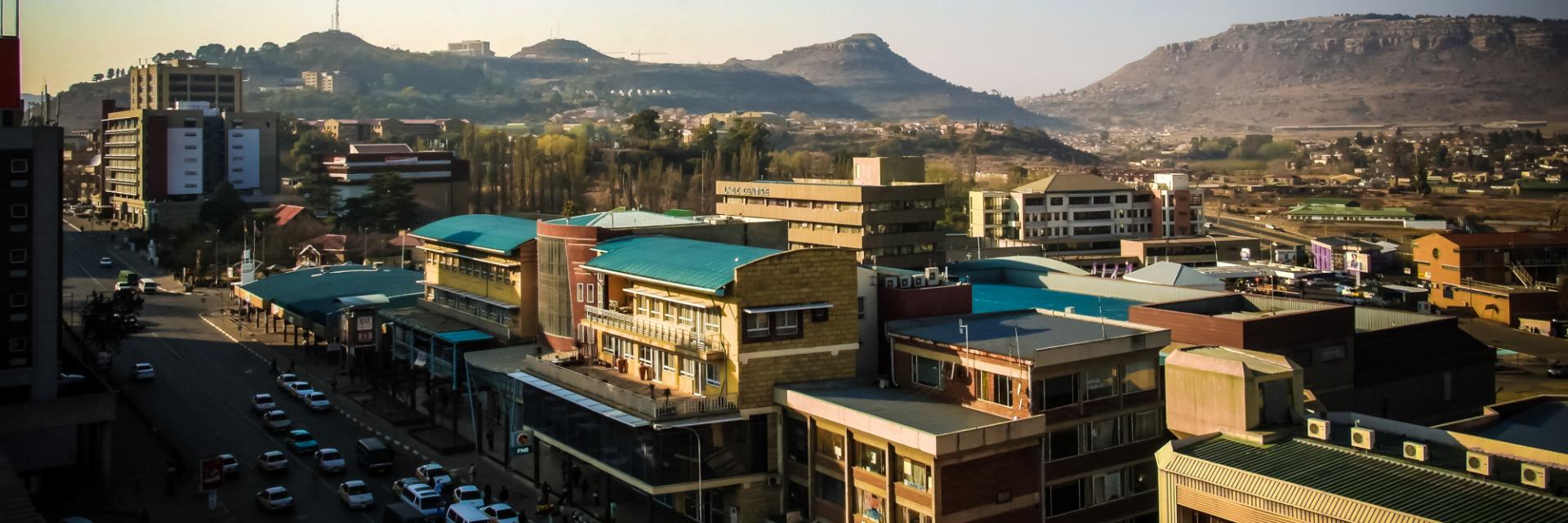Maseru, Lesotho, 27 July 2022: A new report for the first time reveals that Lesotho’s capital city Maseru, which accounts for only 17 per cent of the country’s population, generates about half of the country’s annual gross domestic product (GDP) – a vital economic well-being indicator.
The report, developed by the Lesotho Bureau of Statistics with the support of the United Nations Economic Commission for Africa (ECA), was validated by Lesotho’s national and local government officials, data specialists, national account experts, development experts and urbanisation practitioners at a workshop in Maseru on 25 July 2022.
Findings
The report offers accurate evidence on the economic weight and performance of Maseru and identifies measures that could help unlock its full potential. Findings can support the government in prioritising policy interventions to attract investors, improve competitiveness and strengthen productive economic sectors.
According to the findings, Maseru accounted for about 50 per cent of the national GDP despite representing only 17 per cent of Lesotho’s population. The figure signifies a huge discrepancy of about 60 per cent in GDP per capita between Maseru and the rest of the country.
The services sector is the main contributor to Maseru’s economy at 57 per cent, while the manufacturing industry’s contributions were at 27.8 per cent. A large number of Maseru’s industries recorded negative growth as a result of the disruption caused by the COVID-19 pandemic in demand and supply.
The findings further showed that Maseru’s GDP per capita of $3,470 was on average five times higher than the rest of the country ($687) and three times higher than the national average of $1,149 between 2016 and 2020. This demonstrates the high living standards in the city compared to other parts of the country.
Speaking at the workshop, Ms. Edlam Yemeru, acting Director of ECA’s Gender, Poverty and Social Policy Division, told the participants that African cities contribute a large share to their national economies and have the potential to drive economic growth and social development. However, she added, this potential can only be unlocked if cities are adequately planned and managed, for which economic data at the city level plays a crucial role.
Despite its role in supporting evidence-based decision-making, only a few countries have estimated city GDP in Africa to date.
‘Drivers of economic growth’
“At ECA, we believe putting collective efforts in measuring city GDP in Africa can drive economic growth and transformation. Therefore, we have been supporting selected African cities with their GDP estimation,” Ms. Yemeru stated. “Drawing on the learnings from these experiences, we plan to expand and scale up our support for city GDP estimation to more cities to inform urban planning, economic policymaking and investment decisions.”
She encouraged the government of Lesotho to conduct regular GDP estimation exercises for its primary and secondary cities, while expressing ECA’s full support in this endeavour, particularly in building the technical capacity of the country’s Bureau of Statistics.
Addressing the workshop, Ms. Molato Celina, Director General of Lesotho Bureau of Statistics, said: “This report, which was initiated by ECA, marks an important milestone in the area of economic statistics, particularly since the measurement of the size of city economies is an important component of development planning.”
She added: “Estimates produced in this report are vital for various government stakeholders such as city administration, ministry of development planning and ministry of finance, to formulate and monitor economic policy and allocate resources.”
This report is part of a wider ECA initiative which promotes city-level disaggregation of statistics in Africa and is currently supporting Accra, Harare, Kigali, Lusaka, Maseru and Yaoundé.
Issued by:
Communications Section
Economic Commission for Africa
PO Box 3001
Addis Ababa
Ethiopia
Tel: +251 11 551 5826
E-mail: eca-info@un.org

